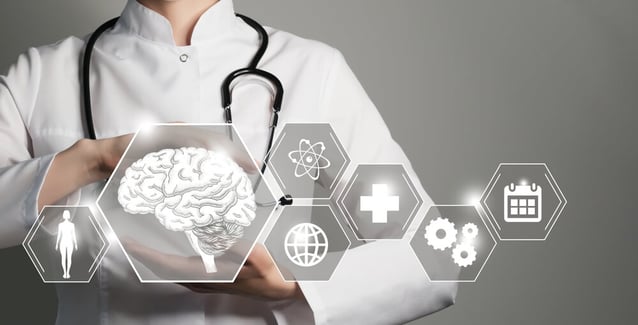
Biology impacts the way humans act because it motivates them toward activities and actions that benefit the personal survival and reproduction of the species; therefore, if you understand how the people in your orbit function biologically, you may determine their motivations for their behavior.
This article briefly describes how interpersonal neurobiology helps to create the framework for that understanding.
What is Interpersonal Neurobiology?
Interpersonal Neurobiology (known as IPNB) is a distinct area of study. It differs significantly from neuroscience. Neuroscience, including the sciences of neurochemistry and experimental psychology, studies the physical structure of the brain and the nervous system and how those organs function.
IPNB, on the other hand, is an interdisciplinary field that studies the human mind and mental health, including the human mind and relationships. IPNB helps individuals understand the complex circumstances humans face, such as work issues, parenting, and interpersonal relationships. For example, IPNB can help you create more balance in your life. IPNB enables you to communicate better with your friends and family.
Why Is IPNB Important to Health Professionals?
IPNB takes healthcare professionals beyond the normal view of interpersonal relationships toward a more comprehensive approach that includes the impact of mindfulness, ethics, attachment theory, community, and diversity. IPNB teaches healthcare professionals to approach their clients' issues with a multi-skill approach. As healthcare professionals learn from IPNB, so do their clients benefit from a greater understanding of their challenges.
Does IPNB Help in the Workplace?
Absolutely. Understanding the concepts of IPNB makes a manager a better leader. For example, IPNB improves a manager's interpersonal skills. It is essential to understand that people depend on positive interpersonal relationships. That is especially true when it comes to working life.
According to recent research studies, 79% of employees quit their jobs because they feel unappreciated. Another 60% say they are more motivated by appreciation (recognition) than money. It makes sense, then, that leaders who recognize and show appreciation for their workers' unique qualities and abilities derive better productivity results. In addition, appreciation boosts employee morale and creates a "positive energy" that flows throughout the organization.
Understanding where your employees' actions "come from" makes you a more thoughtful leader and colors the impact you have on your employees. That is where IPNB comes into play. The study makes managers more observant of the actions of others and why they behave the way they do. Studying IPNB creates leaders who know how to motivate worker productivity and retain workers.
What is the IPNB Program at Portland Community College?
Portland Community College's (PCC) course in IPNB is called the Foundations of Interpersonal Neurobiology Certificate Program. The program helps you improve your understanding and apply relational neuroscience in many aspects of your life. As a result, you can improve personal interactions in both your professional and personal lives. You will learn how to resolve conflicts effectively and understand trauma. Counselors and therapists trained in IPNB help their clients better understand what is happening to them. IPNB helps explain why relationships change. IPNB helps people understand the challenges and mental struggles involved in "why" things happen the way they do.
This certificate program teaches how to reframe how a person perceives personal interactions with family, friends, and co-workers.
The course provides context, science, and ethical considerations for healthcare professionals. It helps clinicians develop a way to deliver services to their clients.
What Will You Learn from the IPNB Program?
The course will advance these concepts:
- Neural integration, which helps increase well-being and connection to others
- Anatomy and physiology of the brain and what elements of the brain impact our knowledge of the mind
- Holistic view of human systems as the flow of energy/information between neural and human networks
- Neuroscience and how it connects to other sciences such as Anthropology, Biology, Linguistics, Sociology, and others
- Best practices in Interpersonal Neurobiology
- Self-regulation and stress management strategies
- Relationship-building practices to create better, stronger bonds driven by trust and respect for each other
- The latest research on the brain, body, and mind, and how whole body systems work to produce our behaviors and feelings
Taking the Next Step
IPNB is relevant whether you are a health care professional, a teacher, a member of the clergy, or someone who seeks help understanding the interpersonal relationships in your life. The Portland Community College IPNB course will help you understand how to change how you relate to others.
IPNB studies how the human brain, body, and mind evolve throughout a person's lifetime. The course helps students discover the multidisciplinary skills needed to develop a healthy mind and more connected personal relationships. Discover more about PCC's courses and how you can benefit from them.


